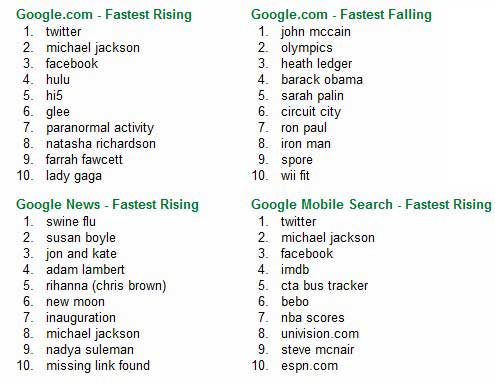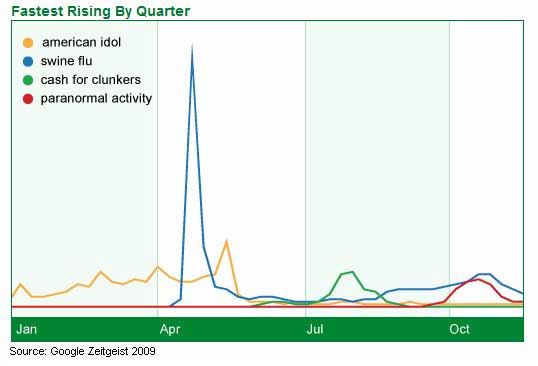Google is a powerhouse of information on a range of human behaviors, emotions, and opinions, and it offers insight into what people might care the most about concerning a given topic, according to a post by Duke and MIT professor Dan Ariely on his blog, PredictablyIrrational.com.
To test Google Suggest*, Ariely entered two half questions in the Google search bar: "how can I get my boyfriend to" and "how can I get my girlfriend to."
The returned results suggest that men and women can have very different things on their minds when they initiate a similar search.

More broadly, Twitter was the fastest rising search term in the US during 2009, followed by Michael Jackson, and Facebook, according to Google Zeitgeist.
Across Google sites and ranked by search volume, popular searches in 2009 included the following:

To find the fastest-rising query for each quarter, Google looked at the most popular searches conducted every three months and ranked them based on how much their popularity increased compared with the previous quarter.
Looking for solid, substantiated information about search engine marketing from the industry's best resources? The 84-page Search Engine Marketing Factbook featuring 55 charts provides data on who is using search engines and how, as well as data on keywords, clicks, and paid search metrics. This search-related factbook consists of chapters 1 & 3 from the larger Digital Marketing Factbook?a 144-page compilation of data and 110 charts that also covers email marketing and social media.
Although some queries maintain a moderate level of search volume over an extended period, others peak sharply and suddenly:

* Google Suggest is powered by Google's databases: As you type into the search box on Google Web Search, Google Suggest offers searches similar to the one you're typing. These suggestions are based on data collected from what people commonly search on the site.
About the data: The Google Suggest analysis was conducted by Dan Ariely, professor of behavioral economics at Duke University and author of Predictably Irrational.



